I could spend paragraphs talking about the literal meaning of "indie" and why it just doesn't apply anymore. "Indie," whether we like it or not, has been made into a musical genre. What used to be a mostly technical term has turned into a phrase that is seriously overused. Radiohead is indie. The Beatles are indie. I'm sure someone on Last.fm has tagged Ladysmith Black Mambazo as indie. There are reputable indie bands out there, but indie culture in itself stretches far beyond The Shins and into thrift stores and Wes Anderson motifs. The popularity of being ironic, poor, and hip has added a lot of conceitedness and pretension to the indie rock movement, which explains why multitudes of people are drawn to it. I remember thinking I was really special when I was one of five people in my high school who listened to Rilo Kiley in 2005, when in reality they'd already become popular. The preconceived notion regarding said audience is why it's become increasingly difficult for me to enjoy the majority of music Pitchfork overhypes.
What that really means is, Merriweather Post Pavilion will not be on this list.
That's not to say this list doesn't have some obvious picks; in fact, the closer you get to number one, the more foreseeable it gets. All of these are pretty interchangeable, and my opinions don't always prove permanent. That said, I present my top ten albums of the last decade, and furthermore congratulate you for even getting this far (seeing as how I sounded unreasonably hateful earlier).
Honorable Mentions:
Dinosaur Jr. - Beyond (2007)
The Decemberists - The Hazards of Love (2009)
Tim and Eric - Awesome Record, Great Songs! (2008)
Arcade Fire - Funeral (2003)
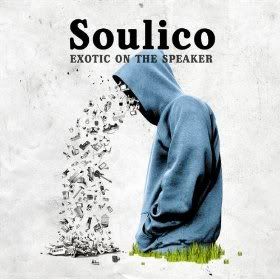
10. soulico - Exotic on the Speaker (2009)
In an age where hip-hop is generally overplayed and overdone, this Tel Aviv-based DJ foursome provides a refreshing alternative. Exotic on the Speaker, their debut on JDub Records, draws upon Soulico's Jewish roots through folk samples and wordplay littered with Yiddish, offering a new take on world music as an unmistakable genre-crosser. With an assortment of guest spots filled by everyone from Ghostface Killah to M.I.A. protégé Rye Rye, it's guaranteed to satisfy even the most fastidious of hip-hop listeners.
>> soulico - "Politrix (feat. Del the Funky Homosapien)"

09. Ween - Quebec (2003)
The duo that gave us the seminal Chocolate and Cheese gave us another fluctuating bunch of tracks that make us want to drop acid. In most cases, Ween is pretty insane, but Quebec was a step in a calmer, more stoner-friendly direction. Its oscillating, sometimes severe mood swings provide engaging noise and blatant comic relief. Even "Happy Colored Marbles," a track with the most terrifying conclusion for anyone on drugs, is laughable. The album retains a lot of musical merit, as there are few musicians as successfully experimental as Gene and Dean, but it's still impossible to compare them to other artists (spare Magical Mystery Tour Beatles) or bind them into a genre. Quebec is just another surprise in their bag of tricks, and judging from the tracks on Pure Guava and La Cucaracha, they'll continue to produce albums that make us feel content and comatose.
>> Ween - "So Many People in the Neighborhood"
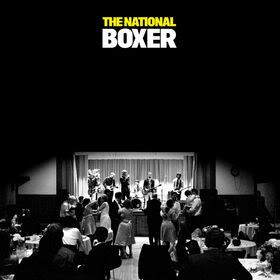
08. The National - Boxer (2007)
Even though vocalist Matt Berninger sounds a lot like Weebl, the National is by far one of the best acts of the last few years. Tons of people regard "Mr. November" as the band's best single, but they obviously have never given Boxer a fair listen, since evocative tracks like "Start a War" and "Fake Empire" blow most of Alligator's material out of the water on initial listen. Washed arrangements provide an excellent backdrop for Berninger's somber and distinctive baritone, helping the album not only succeed in general terms but also as a mood piece. This is the National's way of pushing the boundaries of the genre, and if they continue such a superlative trend, the rules of indie rock may be redefined. Or maybe we'll just have another National album. Either way, the audience wins in the end.
>> The National - "Start a War"
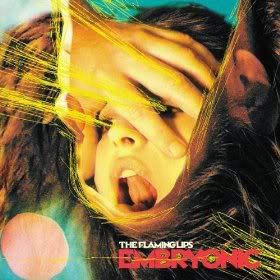
07. The Flaming Lips - Embryonic (2009)
Those superfans looking for duplicates of Yoshimi Battles the Pink Robots or At War with the Mystics (and the people who only know the Lips through those albums, for that matter) will be disappointed. Embryonic not only surpasses these albums by a longshot, but it resurrects the original spirit of the group's material. The tracks sound as if they were conceived in a futuristic era, and the space age twangs and astrological imagery take their place as dominant elements that pick up where the Lips' 2008 sci-fi flick Christmas on Mars left off. The album's surreal nature and utter bombast (see "Aquarius Sabotage" and "See the Leaves") are two of the things that give it its appeal, thus making it one of those Lips' releases that helps us remember how innovative, surprising, and pleasantly unorthodox Wayne Coyne and his boys really are.
>> The Flaming Lips - "Watching the Planets"
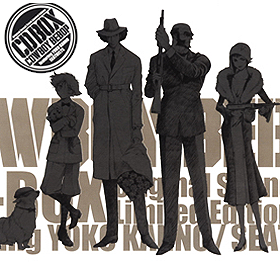
06. Yoko Kanno and the Seatbelts - Cowboy Bebop [Box] (2002)
In all honesty, I just wanted an excuse to squeeze a Yoko Kanno album in here, and since this box set offers the better mix of material, I deem it the most suitable. For those of you unfamiliar with Cowboy Bebop, it's a futuristic anime about two gruff bounty hunters, a hustler with large breasts, and an all-too-happy hacker. They beat up bad guys for cash and the main character has a painfully interesting backstory. While the narrative is exceptional, the music is the most unique component of the show because it assembles so many forms of music into a hodgepodge that's nothing short of classy. On this collection in particular, there's an acceptable amount of material from the other albums as well as the rarities that didn't fit in anywhere else. If you like Coltrane-based jazz, innumerable spooky instrumentals, and a well-paced cover of "On the Run," find a bootleg of this set somehow, because it's an orgasm in a box.
>> Yoko Kanno and the Seatbelts - "Adieu (Long Version)"
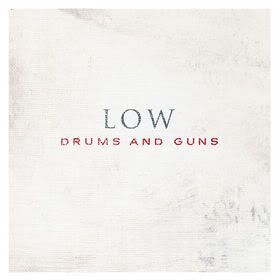
05. Low - Drums and Guns (2007)
The Drums and Guns album cover states a lot about the tone of the album. In truth, it's pretty bleak, so much that I tend to picture the Yukon whenever I listen to it. But "bleak" is certainly not synonymous with "god awful." With few guitars and the echo of ethereal harmonies, Drums successfully combines Low's earlier material with their more recent aesthetics. It's experimental but not completely contrived, and its minimalism (as always) is perfectly crafted. It's purposely haunting and overwhelmingly contemplative, which can also serve as the album's only flaw (not the album to listen to if you're an introspective drunk). Somberness aside, it's completely enjoyable as a textural album. It's worth making it through some of the cryptic wordplay to hear that inverted guitar and all those layers of distinctive vocals.
>> Low - "Breaker"
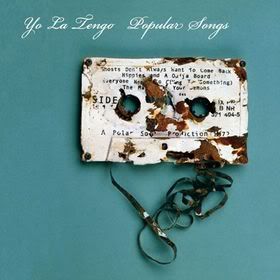
04. Yo La Tengo - Popular Songs (2009)
Popular Songs puts YLT's last effort, 2006's I Am Not Afraid of You and I Will Beat Your Ass, to shame. While Beat Your Ass is great because of the minimalistic production and appropriated noise, Songs makes a bigger statement by possessing all the characteristics of a genuinely romantic album. The long instrumentals lack the pretension of most post-rock tracks, and "Here to Fall" features a slew of strings that serves as perfect accompaniment to the songs that succeed it. From start to finish, Ira Kaplan and Georgia Hubley surprise the listener with an honest and relatable testament to true love, so much that it's impossible not to fall in love with them.
>> Yo La Tengo - "The Fireside"
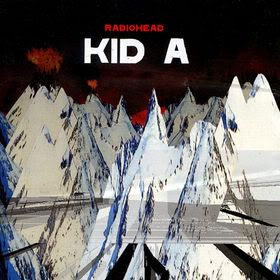
03. Radiohead - Kid A (2000)
There's not a whole lot I can say about Kid A, mainly because everything has already been said. It's an album that emulates retroactive sounds without sounding dated, and it was certainly a gem among all the hokey electronica being released in the earliest part of the decade. I won't blow smoke up Thom Yorke's ass as much as Ryan Schreiber and the rest of the world, but there's justification for all the hype. It's pleasantly listenable and successfully crosses a number of genres, ultimately forming a sexually ambiguous electro post-rock lovechild. If you haven't listened to it yet, I question your living capabilities.
>> Radiohead - "The National Anthem"

02. Elliott Smith - Figure 8 (2000)
Critics trash this album as "overproduced" in comparison to earlier releases, but while it's a little more polished, it's far more uplifting, even for Elliott Smith. Unlike the Kill Rock Star releases (Elliott Smith and Either/Or), Figure 8 does not make me feel like I should take an entire bottle of sleeping pills. The melodies are convincingly happy and engaging (spare "Everything Reminds Me of Her"), and the work as a whole features an array of power pop sounds that are unequivocally excellent. This rings true especially when combined with Smith's thin voice, which is hauntingly gorgeous. This is, by far, the most revered effort in the back catalog left to the world by one very talented songwriter who died too soon.
>> Elliott Smith - "Wouldn't Mama Be Proud?"
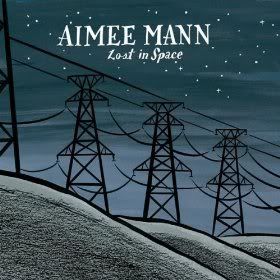
01. Aimee Mann - Lost in Space (2002)
I'm sure most of you are disappointed that Lost in Space is my big kahuna of the decade. Never mind Mann's elaborate storytelling and uniquely pleasant voice; this choice deals with a more personal connection. Every music fan has that one album that helped them see the light, and Lost in Space was my gateway. Up until that point, I'd rarely encountered a female singer-songwriter who I didn't immediately hate, because too many of them featured ex-boyfriends as prevalent subject matter. While Mann does include more than a bit of love-related depression on Space, it's wry and poetic, not whiny and distasteful. She's sincere without being all Alanis about it, and can be morose without being just plain depressing (aside from "This is How it Goes," depending on your mood when giving it a listen). The poignant songwriting proves that Mann is capable of articulating complex thoughts that most individuals can barely form into words, and it's this quality that causes every song to deliver. This, in addition to perfectly crafted melodies, makes the album an experience that deserves more than just a few listens.
>> Aimee Mann - "The Moth"

.jpg)

